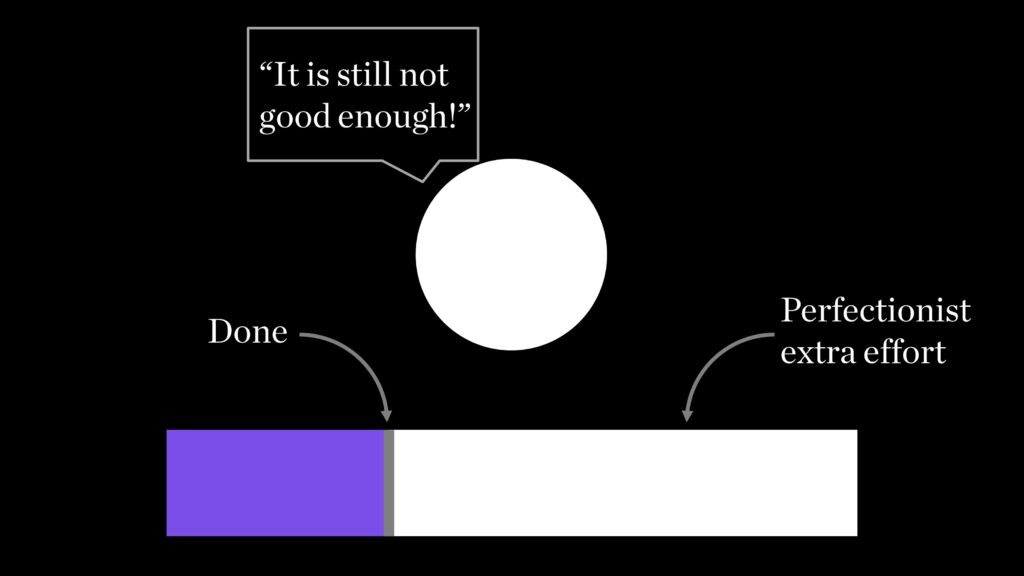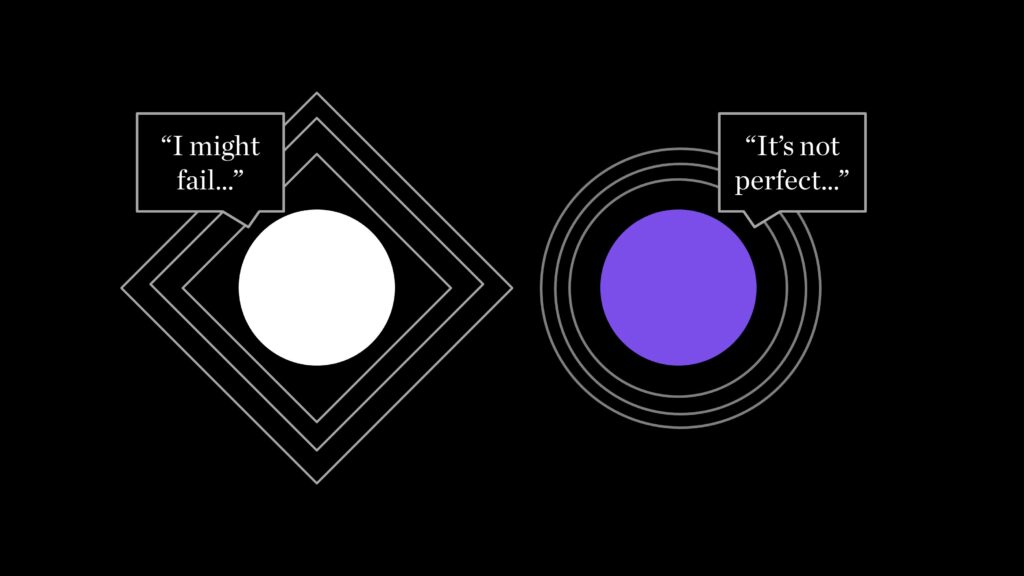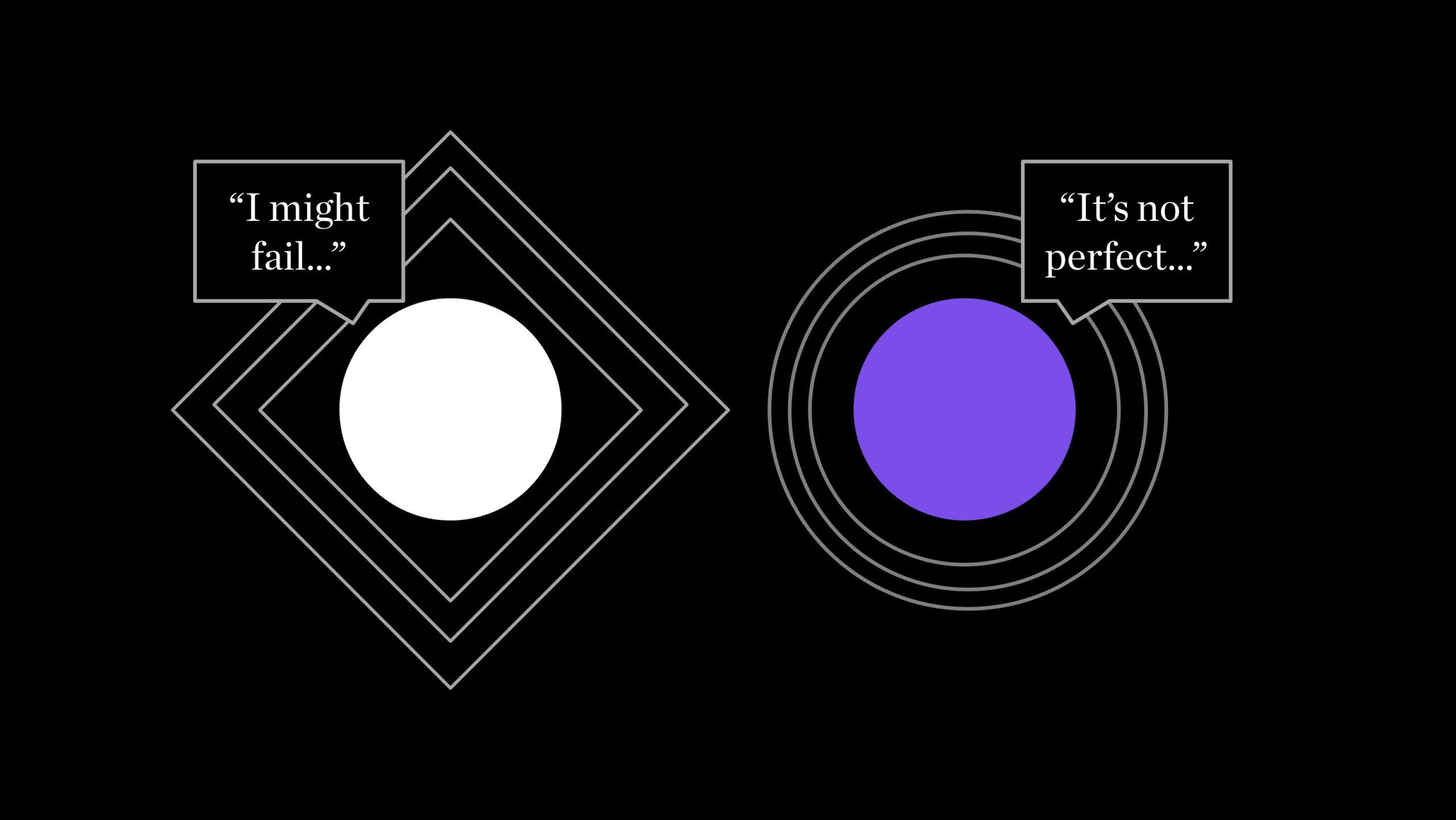Article last updated on February 4, 2022
Perfectionism is something that everyone struggles with at some point or another. Perfectionism is a weakness because it makes us overly critical of ourselves. It keeps us from enjoying life because we spend so much time worrying about making mistakes. We become self-conscious when we make mistakes. This leads to feelings of anxiety and guilt.

When we try to achieve perfection, we put too high expectations on ourselves and often procrastinate.
When we fail to meet these expectations, we get angry and frustrated. These emotions lead to more negative thoughts.
The good news is that perfectionism does not have to be a weakness. In fact, you can use your perfectionist tendencies to your advantage. You can learn how to control your perfectionism and turn it into an asset instead of a liability.

There are two types of perfectionists: those who strive for excellence and those who fear failure. Both types of people can be successful, but they often have different ways of getting there.
Now, let’s see the main reasons why perfection is a weakness.
Main Reasons Why Is Perfectionism a Weakness
There are many reasons why perfectionism is a weakness. I will give you a list of the top ones I’ve noticed are the most common.
Perfectionism causes stress and anxiety
When you are a perfectionist, you tend to worry about making mistakes. As a result, you feel stressed and anxious. Your mind becomes preoccupied with what could go wrong.
This creates tension in your body. The tension causes headaches, stomachaches, backaches, neck pains, etc.
All this pent up tension builds up inside your body. This is called “stress”. And as a perfectionist, you experience more stress than others because you’re always worried about making mistakes.
Perfectionism stops us from taking risks
If you are a perfectionist and you want to take a risk, that’s great, but, you’ll probably think about all the things that could go wrong.

You see, if you do something new, there’s a chance that you might mess up. And if you mess up, then you won’t be able to live up to your own standards. So, you won’t enjoy yourself.
You’ll also feel guilty about messing up. This means that you’ll be even more stressed out.
You may start thinking that you don’t deserve to succeed. If you believe that you don’t deserve success, then you won’t take any chances.
The problem here is that, initially, your own standards are very high. When you want to experience something new, you need to lower them first. Otherwise, you’ll never be able to take a risk.
Perfectionism causes us to procrastinate
One thing that perfectionists struggle with is procrastination. It happens because we set unrealistic goals. This is one of the most common reasons why perfectionism is a weakness.

We set high expectations for ourselves and then we delay doing anything until it’s too late.
If you are a perfectionist who struggles with procrastinating, then you should change your mindset right now.
Instead of setting unrealistic deadlines, set realistic goals. Break these goals into daily, achievable tasks.
Then, work on each task every day. Doing so will help you stay focused and motivated. Also, it will help you avoid procrastinating.
It’s important to note that when you have an unachievable goal, you end up feeling disappointed. This leads to feelings of guilt and self-doubt.
Personally, I think this is the biggest weakness of them all.
Perfectionism prevents us learning from our mistakes
Another reason why perfectionism is a weakness is that it prevents us from learning from our mistakes.
As a perfectionist, you often make excuses for your mistakes. For example, you may tell yourself that you didn’t really mess up.
Or, you may try to justify your mistake by saying that other people were responsible for it.
As a result, you become less accountable for your actions. This makes it harder for you to learn from your mistakes.
In fact, some psychologists argue that perfectionism actually protects us from experiencing negative emotions.
This is because perfectionists tend to focus on their strengths rather than their weaknesses. As a result, they rarely experience negative emotions.
When you fail at something, you can’t deny that you made a mistake. Instead, you just have to accept it.
Accepting failure is much easier than trying to fix it. That’s why failing at something doesn’t hurt as badly as making a mistake.
Also, accepting failure helps you grow.
If you’re not willing to admit that you failed, then you won’t improve. And, this means that you’ll keep repeating the same mistakes over and over again.
Also, if you’re not willing to accept failure, then you won’t develop good habits. In addition, you won’t learn from your mistakes. So, you’ll continue to repeat them.
This is also called “failure-avoiding perfectionism.”
Is There Such a Thing as Excellence-Seeking Perfectionism?
Yes. Excellence-seeking perfectionists strive to achieve perfection in everything that they do. They believe that perfect performance is essential to success. They also believe that there is no room for error or imperfections.

But the only difference between them and regular perfectionists is that they don’t hide their work and they are not afraid of being judged.
They are confident in what they’ve done and are proud of themselves. However, they still struggle with procrastination.
Because they always look for ways to improve their skills and abilities. So, they constantly seek out feedback and advice.
They want to be able to show off their talents and achievements.
Is Being a Perfectionist a Good Weakness?
Yes, being a perfectionist is a good weakness. It helps us improve our lives. If we don’t strive for perfection, then we won’t grow as people.
But, if we are always striving for perfection, then we will never complete the work and keep ourselves from completing it.
In most cases, it is a weakness because it causes stress and avoids taking risks. It also prevents you from hiding mistakes and learning from them.
Perfectionism is a weakness in many ways
Even though I’ve said that being a perfectionist is a good weakness, it is still a weakness. Here are some reasons why:
- It prevents us from having fun.
- It causes us to procrastinate.
- It causes us to focus on the wrong things.
- It causes us to lose confidence.
- It causes us to worry about what other people think.
- It causes us to waste time doing things that aren’t important.
Perfection is a good weakness, but it has its downsides.
Perfectionism is a common problem in today’s society. People are told all the time to be the best they can be, but perfectionism can also make it hard for us to succeed.
Is Being a Self-Proclaimed Perfectionist a Weakness?
Yes, and the reason is simple; self-proclaimed perfectionists usually want to find a reason to justify their behavior.
When someone tells you that they are a perfectionist, you should ask yourself whether the person really wants to change their behavior.
The relationship between perfectionism and a lack of self-awareness is very strong. This is why so many people who claim to be perfectionists actually have a problem with low self-awareness.
When you are more self-aware, you know where you stand and you can see if you are accountable for your actions. You can also understand how much pressure you put on yourself.
If you feel like you need to be perfect at everything, then you probably suffer from low self-awareness.
So, when you hear a person saying that they are perfectionistic, you should take a look at their personality. Are they really trying to change something in their lives? Or are they just using this excuse to avoid facing up to their own shortcomings?
Conclusion
True perfectionionism is not a weakness. However, most people have perfectionist behaviors without being true excellence-seeking perfectionists. Benefits from perfectionism can be reaped by those who truly desire to become better versions of themselves.
Most people avoid negative feedback because they fear it might hurt their feelings or make them look bad, and that has detrimental effects on their performance.
The brightest people don’t try to hide their weaknesses. They embrace them and use them to help others. The same goes for true perfectionists. We shouldn’t be afraid of our imperfections because they give us an opportunity to learn and grow.
If someone has a lack of empathy towards others, they tend to blame others for their failures. However, true perfectionists accept responsibility for their failures and learn from them.


